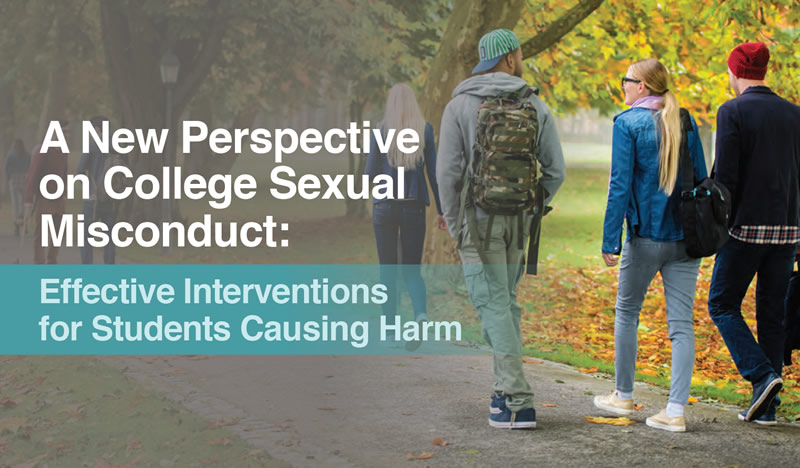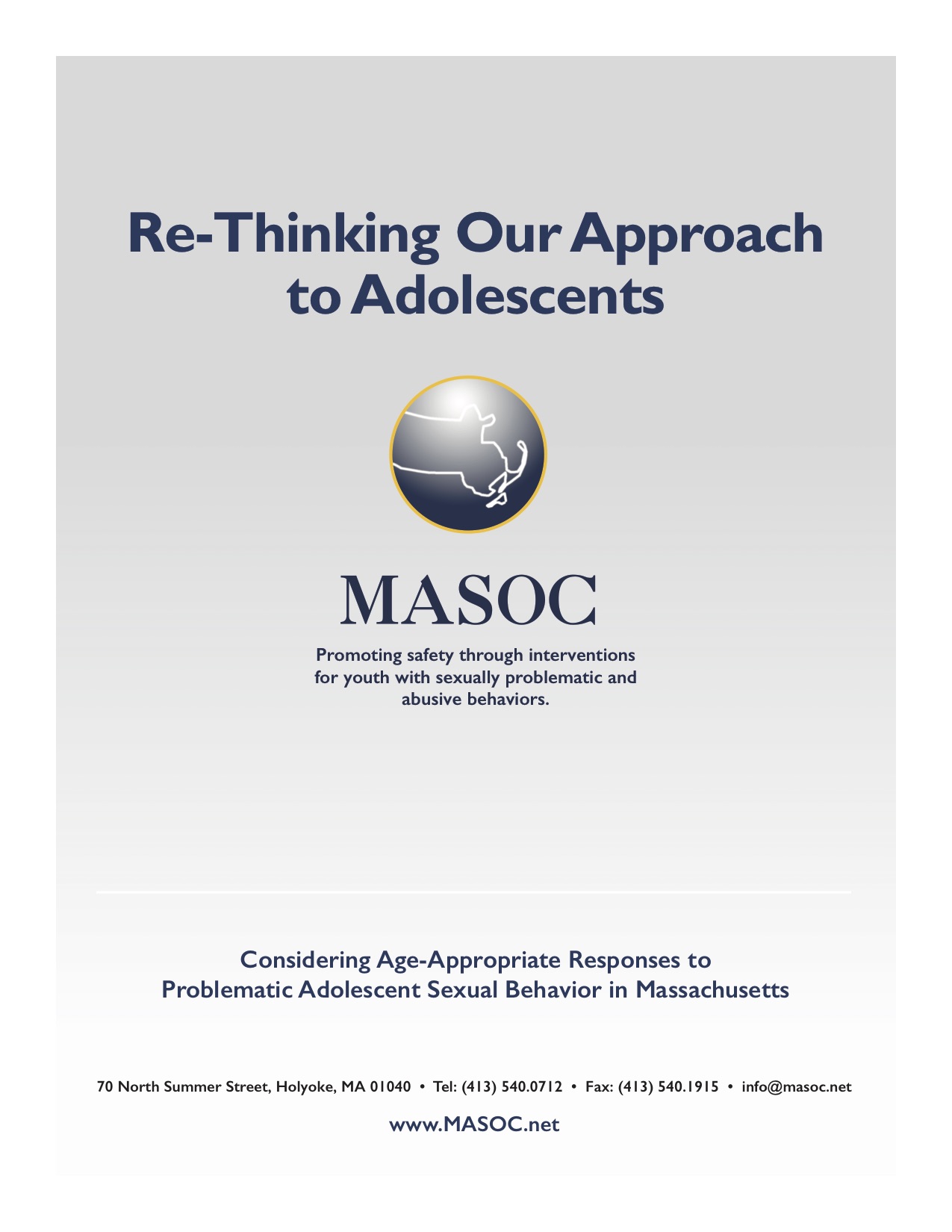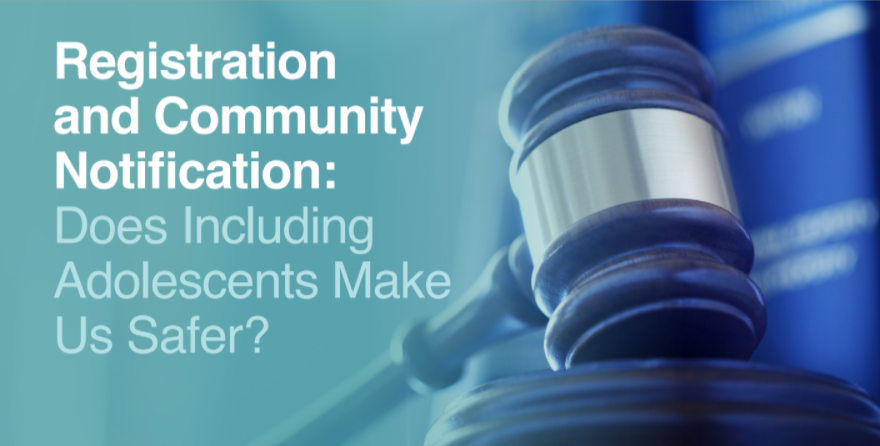Policy News
For years, we have all been reactive to an ever increasing list of policies that affect adult sex offenders as well as children and adolescents who have sexual behavior problems. Over the past year, MASOC and MATSA have been working hard to educate policy makers about:
-
Problem: Policies are often implemented without asking the important question - does this policy have any evidence for making our communities safer?
Progress: We have been seeing a slow shift among among many policy makers towards asking whether any proposed legislation or regulation is based in research and/or proven to be effective.
-
Problem: Adult sex offenders MUST be treated differently than teens or children with sexual behavior problems.
Progress: Research has shown how children or adolescents who sexually abuse are markedly different from adult sex offenders. We are collaborating with a number of groups to begin to align Massachusetts with the progress made in many other parts of the country.
-
Problem: There is very little investment in preventing sexual violence and not enough of our resources are invested in treatment for victims and survivors of sexual violence.
Progress: We are fortunate to have many victim based organizations working with us to ensure that we continue to bring both of these issues into discussion with legislators, public administrators and other key stakeholders.
Focus of our work in Massachusetts
Our current “one-size- fits all” approach to sex offender policy fails to recognize the fundamental developmental differences between adults and adolescents/children that have guided our criminal justice responses for several decades. It also fails to acknowledge and integrate the volume of scientific research that clearly delineates the neurological, social, and environmental factors that influence adolescent and child behavior in a manner that is notably different from adults.
MASOC’s policy work aims to educate legislators, policy makers, clinicians, case managers, and other professionals about the need to provide different standards for care, different treatment and management options, and different policies for youth that are distinctly different from what is offered and mandated for adults.
If you want to learn more, sign up for MASOC’s FREE membership on your registration form to receive policy alerts.
Description of Role
The MASOC Fellow will work with the MASOC Board of Directors for 9-months (September, 2022 – June, 2023) on projects involving children and adolescents with problematic sexual behaviors (PSB). The Fellow will have the opportunity to work on a range of projects of their choice. Topics can include, but are not limited to:
- policy and legislative advocacy
- social media and communications
- fundraising and grant writing
- diversity and anti-racism education.
In the application, the Fellow will provide a statement about their interest in this fellowship, the potential topic area(s) they want to explore and a description of how the fellowship relates to their career goals.
Once the Fellow is chosen, they will be matched with a mentor from the MASOC Board of Directors based upon their interest. The mentor will provide individualized guidance, support, and career mentorship over the course of the fellowship.
The time commitment is approximately 2–5 hours a week in part based on the existing academic and training demands of the Fellow. The Fellow will also have the chance to attend monthly board meetings and participate in the operations of our organization. A stipend of $500 is provided to the Fellow as well as free conference registration at the MASOC annual conference.
Applications are due on June 30, 2022. Please send your application to Joan Tabachnick at This email address is being protected from spambots. You need JavaScript enabled to view it.. If you have any questions or would like to discuss a possible project, please contact Joan Tabachnick.
The MASOC Board condemns the murders of George Floyd, Ahmaud Arbery, Breonna Taylor, Sean Reed, Rayshard Brooks, Andres Guardado, and the thousands of others who have been brutalized or killed due to police violence and white supremacy that is part of the long history of racial violence and discrimination in this country. Each of these people were unique and loved. Their lives mattered.
MASOC Statement On Police Violence, Racism, And White Supremacy
|
Registration and Community Notification In 2019, Massachusetts made the bold decision to decriminalize sexual behaviors in children under the age of 12.1 This decision is part of a growing trend to provide resources for children and families when problems emerge. However, Massachusetts still does not make a distinction between adolescents as young as 12 and adults in terms of sex offender registration requirements (Justice Policy Institute, 2008). The continued use of this policy is notable, given the growing movement in the United States to clarify the distinction between adults who sexually offend and children or adolescents who engage in sexually abusive behaviors. Further, there is a convincing body of research that shows how damaging such laws can be to the still-developing youth. |
|
|
A New Perspective On College Sexual Misconduct In order to effectively address sexual misconduct on college and university campuses, it is necessary to understand the complexity of campus sexual misconduct, the students who have been harmed, and importantly, the students who engage in harmful behavior. But what are the prominent media images of these students who have caused sexual harm? |
 |
 |
Addressing Youth Sexting: A Public Health Approach Given the substantial body of research that shows how damaging adult sex offender laws can be to the still-developing youth and the larger community, there is a growing movement in the USA to clarify the distinction between adults who sexually abuse and the children or adolescents who engage in sexually abusive behaviors. This paper outlines the problem in Massachusetts, provides a systematic presentation of relevant research, and suggests a path to rectifying that problem. |
|
This paper provides an overview about how the differences in adolescent development should beconsidered when developing policies that address the problem of sexual violence, and they should serve as the foundation for creating systemic responses and interventions that are demonstrably different for adolescents and adults in the vast majority of cases. |
 |
|
|
|
Sex Offender Management Assessment and Planning Initiative (SOMAPI)
U.S. Department of Justice, Office of Justice Programs
Recognizing the important role scientific evidence plays in the assessment and treatment of adults and adolescents who have sexually abused, the SMART Office developed the Sex Offender Management Assessment and Planning Initiative (SOMAPI). This project is designed to assess the current state of research and practice in sex offender management and as a result, offers an excellent summary of what is known as well as key recommendations for professionals in this field.
Considering Family Reconnection and Reunification after Child Sexual Abuse: A Road Map for Advocates and Service Providers
Joan Tabachnik and Peter Pollard
This guide is written for sexual assault program advocates working with families who are considering reunification with someone who has sexually offended. It provides an overview of the reunification process and how to navigate the process of clarification, reconnection, and reunification.



